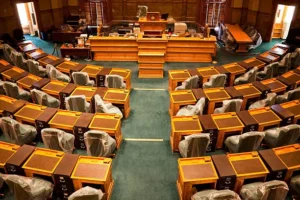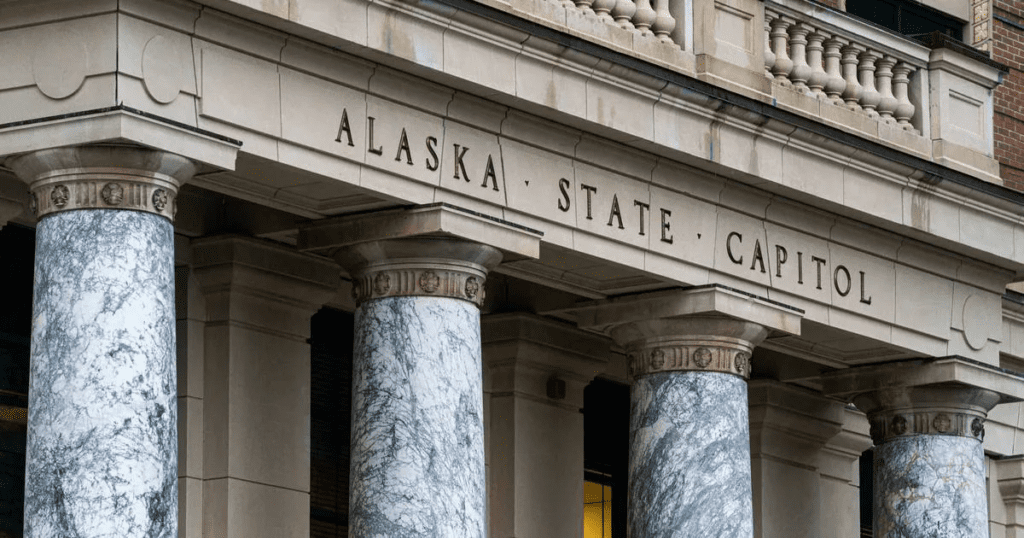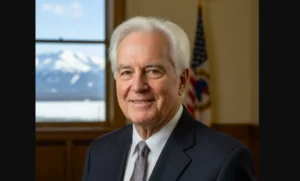With only a few days left before the June 1 filing deadline for Alaska’s legislative candidates, over a third of the state’s 40 House members are on track to run for re-election without opposition.
Candidates have until June 1 to declare their candidacy with the Alaska Division of Elections officially. Many wait until the last moment to submit their paperwork. However, in many parts of the state, Alaska lawmakers are likely to retain their seats with minimal or no competition.
The 2022 election saw the most significant influx of new lawmakers in two decades, with 20 of the 60 new legislators to the Alaska Legislature. This shift was partly due to a decennial redistricting process that placed multiple incumbents in the same districts, creating opportunities for newcomers to run without facing entrenched politicians.
However, 2024 is expected to see much less turnover. Every incumbent up for re-election in the Senate has signaled their intent to run again. In the House, only three lawmakers have announced they do not plan to seek reelection, resulting in limited opportunities for open races.
Rep. Jennie Armstrong, D-Anchorage, whose Alaska residency was contested during the 2022 election cycle, is not running again. Democrat Carolyn Hall is the only candidate registered for that seat.
Rep. Laddie Shaw, R-Anchorage, is retiring this year at 75. Several candidates have expressed interest in running for his seat, including Girdwood Republican Lee Ellis, a craft brewery president, and Ky Holland, a nonpartisan candidate and entrepreneur.
Rep. Ben Carpenter, R-Nikiski, is not seeking reelection to his House seat and is instead running for a Senate seat against incumbent Sen. Jesse Bjorkman. The two Republicans have differing views on critical issues like education funding. Bjorkman voted to override Gov. Mike Dunleavy’s veto of a bill that would have permanently increased education spending, while Carpenter voted to uphold the veto.
Two Republicans, Ben Elam and John Hillyer from Soldotna, have registered to run for Carpenter’s House seat. Elam serves on the Kenai Peninsula Borough Assembly, while Hillyer is a retired Air Force general and pilot.
On Thursday, Rep. Jesse Sumner, R-Wasilla, stated that he remains undecided about seeking reelection. Sumner won the open seat in 2022 in a four-way Republican race. He mentioned that he is considering several factors, including his family and business, and will likely decide near the June 1 deadline.
Where incumbents face challengers, several races will likely see rematches from 2022.
Rep. Tom McKay, R-Anchorage, will once again face Democrat Denny Wells. In 2022, McKay narrowly defeated Wells by seven votes in a ranked-choice tabulation, and this year’s race is also expected to be very close.
Rep. Stanley Wright, R-Anchorage, has announced his intention to run for reelection. Democrat Ted Eischeid, who lost to Wright by 72 votes in 2022, is also running again.
Rep. Dan Ortiz, I-Ketchikan, will again be challenged by Republican Jeremy Bynum. In 2022, Ortiz won by 343 votes.
Rep. Julie Coulombe, R-Anchorage, will again face nonpartisan candidate Walter Featherly. In 2022, Featherly garnered over 45% of the vote but was ultimately defeated by Coulombe in a ranked-choice tabulation after third-place Republican Ross Bieling was eliminated.
Rep. Cliff Groh, D-Anchorage, will again compete against Republican David Nelson, who received 44% of the district’s votes in 2022 when Groh defeated him.
Rep. Neal Foster, D-Nome, is set to face Tyler Ivanoff from the Alaska Independence Party. In the 2022 election, Foster narrowly beat Ivanoff by 92 votes.
Sen. James Kaufman, R-Anchorage, will be challenged by Democrat Janice Park, who lost to him by more than 1,300 votes in 2022.
Sen. Kelly Merrick, R-Eagle River, is gearing up for another race against Republican Ken McCarty and two additional Republican challengers. McCarty, a former House member who positioned himself further to the right, lost to Merrick by over 2,400 votes in 2022.
The upcoming election holds significant stakes for challengers aiming to unseat incumbents, as the Alaska House and Senate control is on the line. The Senate is currently led by a 17-member bipartisan coalition, which is expected to remain intact, though it’s not sure. In the House, Republicans narrowly secured control in 2023 with the support of four non-Republican members of the Bush Caucus, representing rural districts. Many believe that control of the House could quickly shift if Democrats or nonpartisan candidates win even a few seats currently held by Republicans.
The recent announcement hints at discussions among lawmakers held in private ever since Governor Dunleavy vetoed Senate Bill 140 earlier this year. It suggests that opposition to the veto override vote may affect some Republican incumbents in their reelection campaigns.
In a recent interview, Johnson revealed that he had contemplated running for the Legislature over a decade ago. However, he was content serving on his local borough assembly and living in his Clam Gulch residence.
“I was hesitant to alter my situation. Despite being urged to run several times, I remained steadfast until the failure to override the governor’s veto of education funding,” Johnson said
Vance aligns herself with the conservative wing of the current Republican-dominated majority and has been a staunch supporter of Dunleavy’s policies. On the other hand, Johnson stated that if elected, he aims to join a bipartisan caucus and push back against certain aspects of Dunleavy’s agenda, particularly in education and fishery management.
The impact of the veto override vote has spurred challengers to enter races beyond just the Kenai Peninsula.
In District 40, encompassing the North Slope and Northwest Alaska, Robyn Burke, a Democrat from Utqiagvik, shared that Rep. Thomas Baker, R-Kotzebue, influenced her decision to run for the state House. Initially favoring the education legislation, Baker later voted to uphold Dunleavy’s veto, prompting Burke’s candidacy.
In an op-ed published in the Daily News, Burke, the President of the North Slope Borough School District board, expressed that Baker’s vote guaranteed significant cuts to education funding. These cuts would likely hinder the ability to staff schools and adequately provide essential materials.
Burke is one of two challengers who intend to run against Baker alongside Kotzebue city mayor Saima Chase. Baker was appointed to the seat by Dunleavy after former Rep. Josiah Patkotak was elected North Slope Borough Mayor last year. As of Thursday, Baker had yet to file to run for the seat and did not respond to inquiries about his intentions. Earlier this month, Baker announced on social media his decision to change his party affiliation from Republican to undeclared, stating that it would allow him to address the specific needs of his constituents better.
The primary election is scheduled for August 20th. In Alaska’s election system, the four candidates with the highest votes in each legislative race, regardless of party affiliation, move on to the general election.











